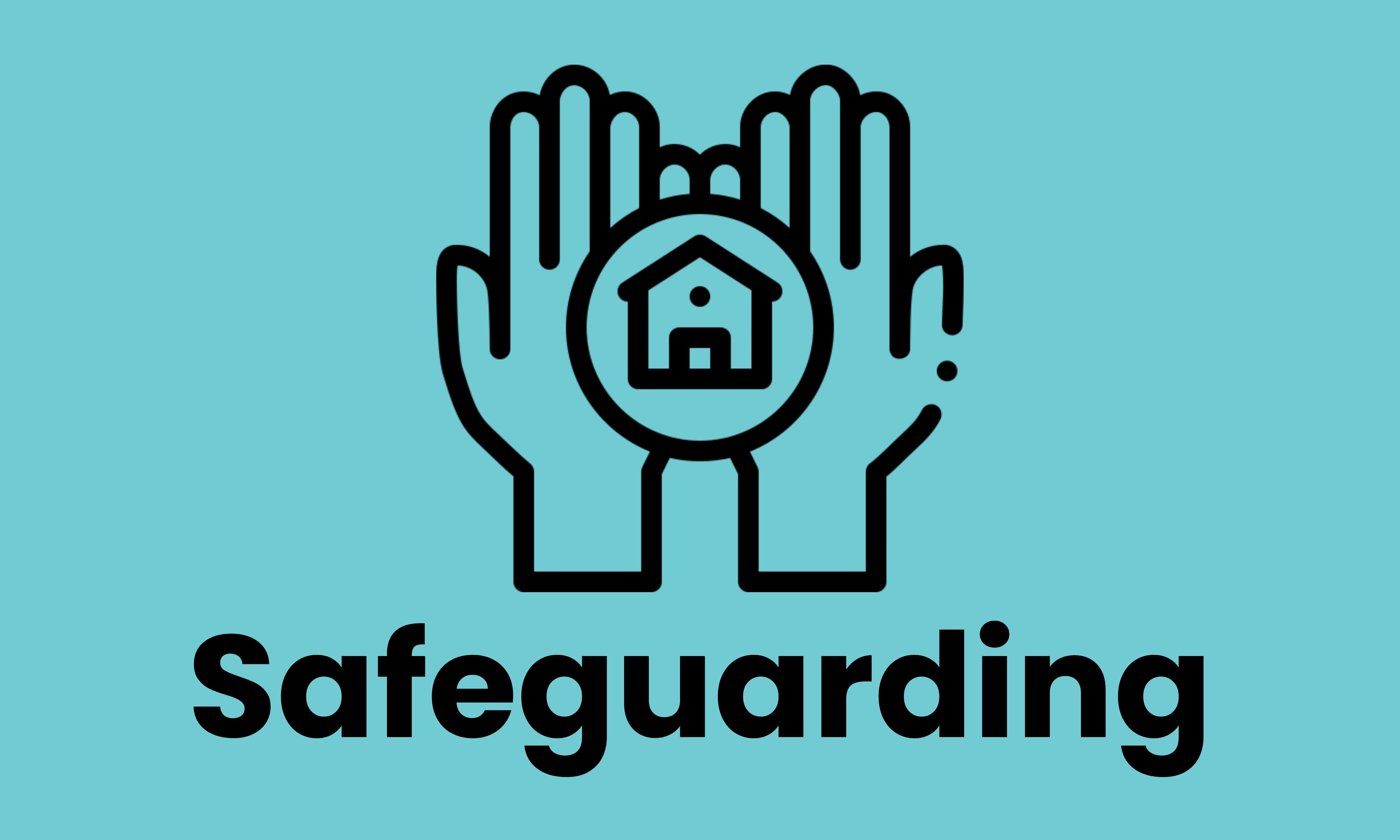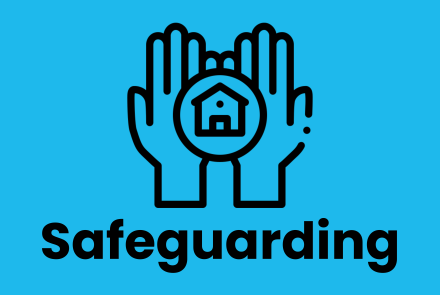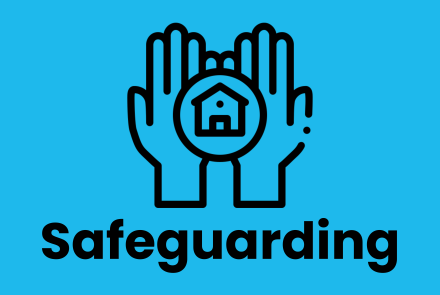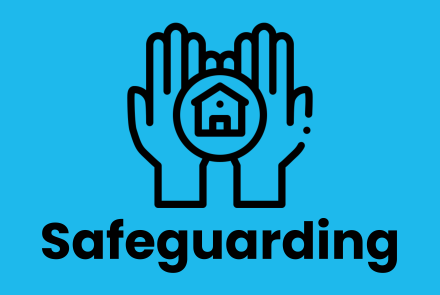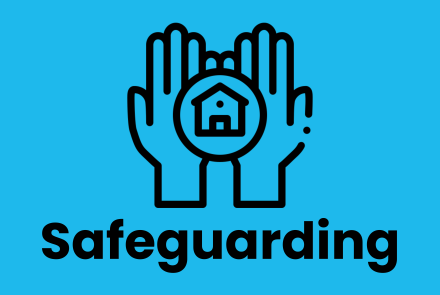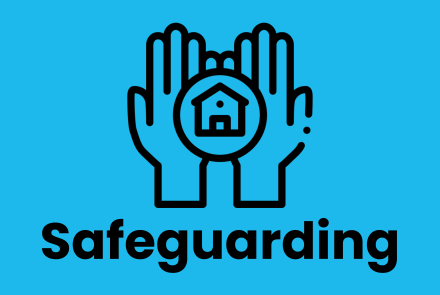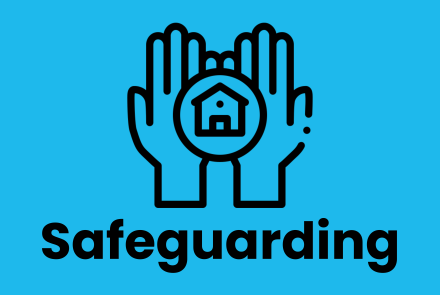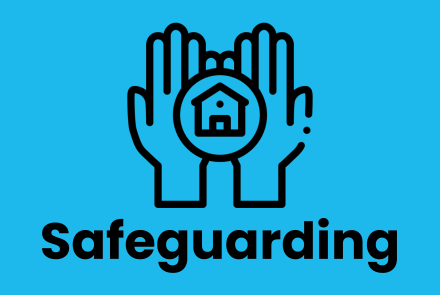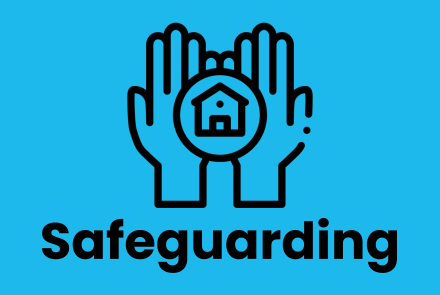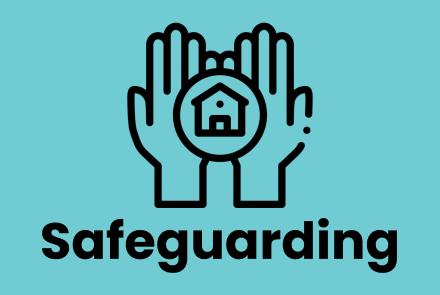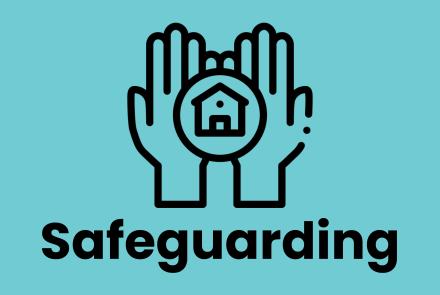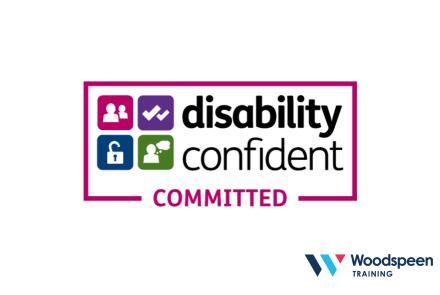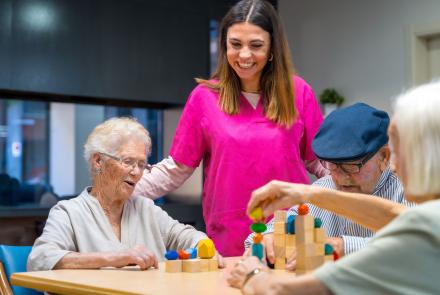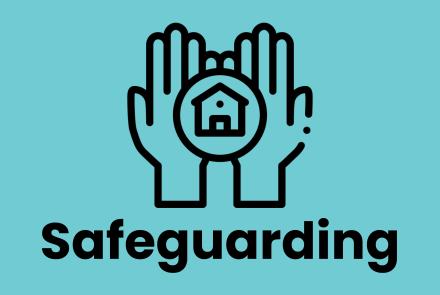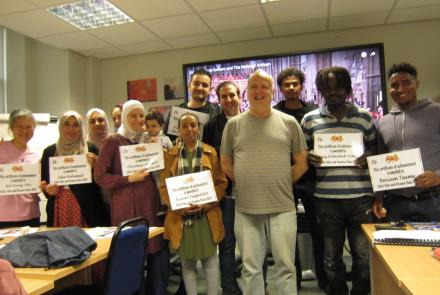Monthly safeguarding bulletin - April 2024
April's Safeguarding bulletin covers adult abuse and the The Big Ambition consultation undertaken by the Children's Commissioner. Read on to find out more.
Adult abuse
It's not always easy to spot the signs of abuse. Someone being abused may make excuses for why they're bruised, may not want to go out or talk to people, or may be short of money. It's important to know the signs of abuse and, where they're identified, gently share your concerns with the person you think may be being abused. If you wait, hoping the person will tell you what's been happening to them, it could delay matters and allow the abuse to continue.
The ten categories of abuse that adults may experience are:
- Physical abuse
- Domestic violence or abuse
- Sexual abuse
- Psychological or emotional abuse
- Financial or material abuse
- Modern slavery
- Discriminatory abuse
- Organisational or institutional abuse
- Neglect or acts of omission
- Self-neglect
Spotting the signs of abuse in adults:
- Unexplained or inappropriately explained injuries
- Depression
- Withdrawal from regular activities, unusually subdued, or poor concentration
- Unexplained fear or anxiety
- Absence from work and/or social occasions
- Personality changes such as being jumpy or nervous>
- Low self-esteem
- Not being in possession of legal documents such as passport, identification, and bank account details, as they are being held by someone else
- Looking malnourished, unkempt, or appearing withdrawn
- Owning few personal possessions, often wearing the same clothes and the clothes they are wearing may not be suitable for their work
Further information on adult abuse can be found here
What to do if a child or adult discloses abuse
It can be distressing when a child or adult discloses abuse and you may not know what to do:
- Listen carefully to what they're saying
Be patient and focus on what you’re being told. Try not to express your own views and feelings. If you appear shocked or as if you don’t believe them it could make them stop talking and take back what they’ve said - Give them the tools to talk If they're struggling to talk to you
For a child or young person show them Childline's letter builder tool. It uses simple prompts to help them share what's happening and how they're feeling - Let them know they've done the right thing by telling you
Reassurance can make a big impact. If they’ve kept the abuse a secret it can have a big impact knowing they’ve shared what’s happened - Tell them it's not their fault
Abuse is never the victims fault. It’s important they hear and know this - Say you'll take them seriously
They may have kept the abuse secret because they were scared they wouldn’t be believed. Make sure they know they can trust you and you’ll listen and support them - Don't confront the alleged abuser
Confronting the alleged abuser could make the situation worse for the child - Explain what you'll do next
Explain you’ll need to report the abuse to someone who can help - Report what you told you as soon as possible
Report as soon after you’ve been told about the abuse so the details are fresh in your mind and action can be taken quickly. It can be helpful to take notes as soon after you’ve spoken to the child. Try to keep these as accurate as possible
Dealing with a disclosure Let children know you’re listening | NSPCC Learning. Whilst produced by the NSPCC, the information contained in this video is relevant if dealing with any disclosure or sensitive conversation.
Domestic abuse
Domestic abuse and violence is a crime, it is when there is violent, abusive, or bullying behaviour or actions towards another person often a partner or former partner to scare and control them. It can happen at home or outside the home and at any time, and anyone can be a victim of domestic abuse, regardless of gender, age, ethnicity, religion, socio-economic status, sexuality, or background.
Domestic violence is a major contributor to ill health, it has serious consequences on mental and physical health, including sexual health. This can include injuries, temporary or permanent disabilities, depression and sometimes self- harming that leads onto suicide.
Domestic abuse affects one's thoughts, feelings and behaviours and can significantly impact one's mental stability. Increased anxiety, post-traumatic stress disorder and depression symptoms are commonly observed among survivors of domestic violence.
Recognise domestic abuse
Does your partner, ex-partner or someone you live with:
- Cut you off from family and friends and intentionally isolate you?
- Bully, threaten, or control you?
- Take control of your finances?
- Monitor or limit your use of technology?
- Physically and/or sexually abuse you?
Domestic abuse is not always physical violence. It can also include:
- Coercive control and ‘gaslighting’
- Economic abuse
- Online abuse/li>
- Threats and intimidation
- Emotional abuse
- Sexual abuse
If you believe that you are a victim of domestic abuse, there are signs that you can look out for including:
- Being withdrawn, or being isolated
- Having bruises, burns or bite marks on you
- Having your finances controlled, or not being given enough to buy food, medication or pay bills
- Not being allowed to leave your house, or stopped from going to college or work
- Having your internet or social media use monitored, or someone else reading your texts, emails, or letters
- Being repeatedly belittled, put down or told you are worthless
- Being pressured into sex or sexual contact
- Being told that abuse is your fault, or that your overreacting
Getting Help and support
All forms of domestic abuse are not acceptable in any situation. Experiencing domestic abuse or controlled by, a partner, an ex-partner or family member, it is important to remember that it is not the victims fault and there is no shame in seeking help. It may seem like a difficult step to take, but there is support available and #YouAreNot Alone.
Free, confidential support and advice is available to victims and their concerned family members or friends, including supporting survivors to move forward beyond domestic abuse 24 hours a day.
National Domestic Abuse helpline
The National Domestic Abuse Helpline is a freephone 24-hour helpline which provides advice and help to women and can refer them to emergency accommodation – 0808 2000 247. You can also chat online and access support through the website, if you are unable to speak over the phone, it has an easy and quick exit button.
The National Domestic Abuse helpline is run by Refuge, please see some useful links below.
National Domestic Abuse helpline - I am still living with my abuser
Domestic Abuse helpline - I am planning to leave my abuser
Respect - Men's Advice Line
The Men's Advice Line is a confidential helpline for all men experiencing domestic violence by a current or ex-partner, call 0808 802 4040. They provide emotional support and practical advice and can give you details of specialist services that can give you advice on legal, housing, child contact, mental health, and other issues.
Children’s Rights
The Children’s Commissioner has published findings from The Big Ambition, a large-scale consultation of children and young people aged 6-18-years-old in England carried out between September 2023 and January 2024.
Children were surveyed about family life, health, education, social care, online safety and other aspects of their lives, and asked about their views on how to make children’s lives better.
253,000 survey responses were received with additional focus groups and interviews undertaken with children and adults from groups who were less likely to be able to complete an online survey.
Findings include: 22% of children agreed that the people who run the country listen to what they have to say; 93% of respondents agreed that they live with people who make them ‘feel loved and cared for’; and 64% of respondents agreed that they ‘enjoy school or college’.
The Children’s Commissioner sets out recommendations for policymakers based on these findings in a separate report.
Prevent and Radicalisation
On 14 March 2024, the government updated their definition of ‘extremism’, which was in a direct response to an increased extremist threat since the October 2023 attacks in Israel.
The new definition provides a stricter characterisation that government can use to make sure that extremist organisations and individuals are not being legitimised or given a platform through their interactions with government.
New definition: Extremism is the promotion or advancement of an ideology based on violence, hatred or intolerance, that aims to:
- Negate or destroy the fundamental rights and freedoms of others; or
- Undermine, overturn or replace the UK’s system of liberal parliamentary democracy and democratic rights; or
- Intentionally create a permissive environment for others to achieve the results in (1) or (2)
The scope of the definition applies to UK ministerial central government departments only, so FE settings are not currently expected to apply the principles, or to change how they currently safeguard learners from radicalisation and build their resilience to extremism.
FE providers should continue to use existing guidance, resources and support to help them safeguard learners from radicalisation.
Prevent
The current UK national terrorist threat level is ‘substantial’, which is defined as ‘an attack is likely’. This level has been unchanged since February 2022 and is set by the Joint Terrorism Analysis Centre and the Security Service (MI5).
The threat to Northern Ireland from Northern Ireland-related terrorism is ‘severe’, which is defined as ‘an attack is highly likely’.
More information is available here.
17 Year Old from Gateshead Sentenced at Newcastle Crown Court
Vincent Charlton, a 17-year-old from Gateshead, was sentenced in March to 28 months imprisonment and one year extended licence after pleading guilty to seven offences, including five under the Terrorism Act.
Vincent Charlton pleaded guilty to the following terrorist offences at a hearing in September 2023:
- Using online channels, Charlton uploaded and shared bomb-making manuals which included a guide on how to build a pipe bomb
- One offence of providing a service to others that enabled them to obtain, read, listen to, or look at terrorist publications, or to acquire them by means of a gift, sale or loan
- Four offences of possessing a document containing information of a kind likely to be of use to a person preparing or committing an act of terrorism
The Regional Prevent Coordinator for Northumbria Police, said: “The broad spectrum of extremist content online and its influence on young people is an ongoing concern. We’re increasingly seeing mixed ideologies which promote harmful or violent agendas to impressionable audiences."
“Police and partner agencies continue to work hard to tackle the threat posed by the sharing and possession of extremist content online, and, through the Prevent Strategy, protect young and vulnerable people against extremism in all its forms.”
For more information, visit this page.
Teenager Pleads Guilty to Ten Offences
A 15 year old from Stockon-on-Tees appeared before Westminster Youth Court in March, where he pleaded guilty to ten offences. The charges follow an investigation by Counter Terrorism Policing North East into suspected extreme right wing terrorism:
- Five offences relating to collecting or making a record of information of a kind likely to be useful to a person committing or preparing an act of terrorism
- Three offences of dissemination of terrorist publications
- One offence of Criminal Damage
- One offence of Racially Aggravated Criminal Damage
The teenager was arrested in December 2023 as part of a pre-planned intelligence led operation and further arrested in January 2024. He will be sentenced on June 4, 2024.
For more information visit this page.


